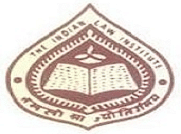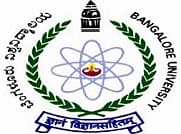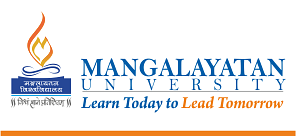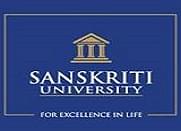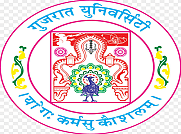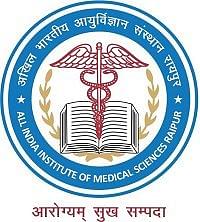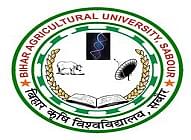M.Sc.
Mining Engineering Admission Process
Understanding the M.Sc. Mining Engineering admission process is crucial for
securing a place in a top-tier program. Here’s a step-by-step breakdown of the
process:
1. Research and University Selection
Begin by researching universities known for their strong M.Sc. Mining
Engineering programs. Look for institutions with cutting-edge research
facilities, experienced faculty, and strong industry connections. Universities
like Colorado School of Mines, University of New South Wales (UNSW), and Indian
Institute of Technology (IIT) are renowned for their mining engineering
programs.
2. Entrance Exams
Most universities require candidates to pass entrance exams such as the
Graduate Aptitude Test in Engineering (GATE) or specific university entrance
tests. These exams assess your knowledge in core engineering principles,
mathematics, and subjects relevant to mining engineering.
3. Application Submission
After clearing the entrance exams, the next step is to submit your
application. This generally includes:
- Academic
transcripts
- Entrance
exam scores
- Letters
of recommendation
- Statement
of purpose
- Resume
highlighting relevant experience
4. Interview Process
Shortlisted candidates may be called for an interview. This stage evaluates
your passion for mining engineering, problem-solving skills, and understanding
of key concepts. Be prepared to discuss your previous academic work and any
practical experience you may have.
5. Final Selection
Based on your performance in the entrance exams and interviews, universities
will release a list of selected candidates. Successful applicants will then
need to complete the enrollment process, which may include paying fees and
submitting required documents.
Eligibility Criteria for M.Sc. Mining
Engineering
Meeting the eligibility criteria is essential for admission into an M.Sc.
Mining Engineering program. While specific requirements may vary between
universities, the general criteria include:
1. Educational Background
Candidates must have a Bachelor’s degree in Mining Engineering, Civil
Engineering, Mechanical Engineering, or a related field. A strong academic
record is essential, with most universities requiring a minimum aggregate score
of 50-60%.
2. Entrance Exam Scores
High scores in entrance exams like GATE or university-specific tests are
often mandatory. These scores play a significant role in the selection process
and demonstrate your proficiency in key areas.
3. Work Experience (Optional)
Relevant work experience in mining operations, research organizations, or
related fields can enhance your application, though it is not always mandatory.
4. Language Proficiency
For international students, proficiency in English is necessary.
Standardized test scores from TOEFL or IELTS are usually required.
5. Age Limit
While there is generally no strict age limit for M.Sc. Mining Engineering
programs, candidates are typically within the age range of 20-30 years at the
time of admission.
Syllabus and Curriculum for M.Sc. Mining
Engineering
The M.Sc. Mining Engineering syllabus is designed to provide a comprehensive
understanding of mining processes, safety protocols, and sustainable practices.
The curriculum combines theoretical knowledge with practical skills, preparing
students for careers in the mining industry. Here is an overview of the typical
subjects covered in an M.Sc. Mining Engineering program:
1. Fundamentals of Mining Engineering
An introduction to the basic principles of mining engineering, including the
history and development of mining techniques, exploration methods, and mining
economics.
2. Mineral Exploration and Geostatistics
Study of techniques used for mineral exploration, resource estimation, and
geostatistical analysis. This course covers geological mapping, sampling
methods, and the use of software for resource modeling.
3. Rock Mechanics and Ground Control
Examination of the mechanical properties of rocks and the principles of
ground control. Topics include stress analysis, rock mass classification, and
design of support systems.
4. Mine Design and Planning
Understanding the principles of mine design and planning, including open-pit
and underground mining methods. This course covers mine layout, production
scheduling, and cost estimation.
5. Mining Equipment and Automation
Study of mining equipment and automation technologies. This includes the
selection, operation, and maintenance of equipment used in mining operations,
as well as the application of automation and robotics in mining.
6. Environmental Management in Mining
Focus on the environmental impact of mining activities and the methods used
to mitigate these impacts. Topics include mine waste management, reclamation,
and sustainability practices.
7. Health and Safety in Mining
Understanding the health and safety protocols in mining operations. This
course covers risk assessment, safety regulations, and the implementation of
safety management systems.
8. Mineral Processing
Study of the techniques used to process and extract valuable minerals from
ores. This includes crushing, grinding, flotation, and other beneficiation
methods.
9. Computational Methods in Mining Engineering
Focus on the use of computational tools and techniques in mining
engineering. This includes modeling, simulation, and optimization of mining
processes.
10. Research Methodology and Thesis Work
The program culminates in a research project or thesis, allowing students to
apply their knowledge to real-world problems and contribute original research
to the field of mining engineering.





